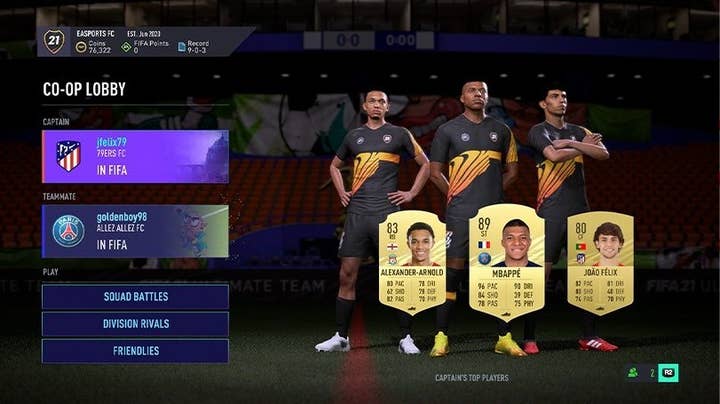The games industry is given one more shot to fix its loot box problem | Opinion
The big games companies must get behind Government recommendations and support the new Video Game Research Framework
So, after all the interviews and surveys and research and committee hearings, all the 'surprise mechanics' memes and hyperbolic tweets full of false equivalence ("They're just like football stickers"... "They're basically casinos")... After all that, the UK Government has done what any parent would when faced with two squabbling children: shout "just sort it out would you?" and close the door.
The UK Government was always unlikely to legislate against loot boxes. For one, the video games industry contributes nearly £3bn to the UK economy, which is more than double the fishing industry (and if Brexit has taught us anything, fishing must be one of the most important industries in the world). It understandably doesn't want to meddle in one of the UK's fastest growing sectors.
Legislating against loot boxes is also going to be expensive. If the Government did decide that loot boxes are a form of gambling, then it would require a massive expansion of the Gambling Commission. The NERA Economic Consulting 2021 Report estimated that it would almost double the Commission's annual costs. Meanwhile, the communications regulator Ofcom, which could help here, have their hands tied by the ongoing farce that is the Online Safety Bill.
So people are too busy and it's too costly... let's just forget about it, yeah?
I am being facetious. But amongst all those bad reasons for not legislating loot boxes, there are real reasons, too.
The loot box research that keeps getting quoted doesn't go deep or far enough
For one, the loot box research that keeps getting quoted doesn't go deep or far enough. Are all loot boxes as bad as one another? There's evidence that loot box customers are more likely to 'experience gambling, mental health, financial and problem gaming-related harms'... but are loot boxes causing those issues? And which audiences are most susceptible?
Legislation is also not always the best approach. Get it wrong, and you might end up dragging in areas and products for which the legislation was not intended. And it doesn't always work out. Take the Netherlands' loot box regulations. It states that loot boxes can avoid gambling regulations as long as players can't trade their items with other players. But this has the potential consequence of players having to buy more loot boxes than usual, because it can't obtain the items any other way.
Or Belgium, which also introduced legislation against loot boxes, but critics say it's so broad that it could encompass any game that has any randomised element in it.
This is also a fast-moving area of games. It's constantly shifting with new concepts being introduced and trialled. The body best suited to keeping an eye on it all and making sure people are protected is the games industry itself.

You can understand why critics would despair at that. The games industry's efforts to deal with loot boxes has so far been the introduction of a vague content 'label' (which 34% of gamers are unaware of), and some probability stats so that players can see how likely they are to receive a rare item. But even those stats are so broad that they're effectively useless... if you have a less than 1% chance of getting an item, are your chances 0.9%? Or 0.00001%?
But now the games industry has received an order from the UK Government to go further, and it must -- particularly those in power (we're looking at you, Microsoft, Sony, Nintendo, Apple, Google, Valve, EA, Activision, etc...). And the list of recommendations that the Government have made are not unreasonable. In fact, some seem like things publishers ought to be doing anyway.
First, create an extra layer of protection with children, so that parents are forced to approve any loot box purchases. Make it as transparent as possible about the use of the mechanic, the fact that it's not essential to play and that it doesn't guarantee success. Be generous when it comes to refunding loot box purchases.
And -- for me, this is the big one -- keep an eye on players who are spending excessively, send them automated messages and have people who are trained to deal with problem situations. If the games industry is serious about creating these virtual worlds where people spend hours of their time every day, then surely a group who are there to care for these players is going to be an essential component of any community team?
The UK Government's report this weekend will come as a relief to the big companies in the games business. It's clear the industry is held in high regard by the tone of the release (out of the three quotes in the press release, two were from video game trade bodies). The requests seem realistic and reasonable. And pushing the release out on a Sunday while the country melts amidst its worst ever heatwave (and with the race for the UK's next Prime Minister also hotting up), will likely mean some of the more mainstream media outlets will simply overlook it all.
It's a chance, possibly the last chance, for the games industry to take its responsibility seriously
But this isn't over. Within the release was the news of the Video Games Research Framework, a new initiative designed to help identify the impact of gaming, for good and for ill.
This is potentially significant. It's a way for the Government, and actually all of us, to understand more broadly the positives and negatives of playing games. It will bring together industry and academics to look at monetisation practices and identify anything problematic so that developers can avoid or reduce harming its players.
But it's not just about business models; it'll discuss why people play games, how and why games are designed the way they are, the effectiveness of the rules we have in place, and also to highlight the positive influence games can have, too.
With COVID accelerating the popularity and acceptance of digital worlds, this is exactly the sort of initiative the industry needs to make sure we're moving into the future in a way that protects our audiences.
Ultimately, the news that the Government won't legislate loot boxes (yet) may seem like a blow to those who feel the monetisation method is exploitative and dangerous, and a victory for the likes of EA. But that's not quite what this is. It's a chance, possibly the last chance, for the games industry to get itself in order and take its responsibility seriously.
Because if it doesn't, and if things haven't moved forward by the start of next year, what happens next may well be out of its control.

